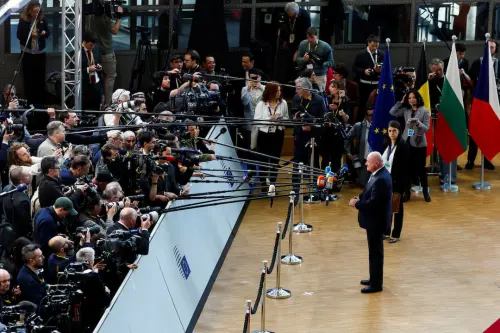European Union leaders are expected to commit to enhancing the bloc's competitiveness by strengthening its military capabilities in response to U.S. tariffs and various economic challenges, as well as uncertainties regarding future U.S. defense support. All leaders, with the exception of Hungary's Viktor Orban, will likely reaffirm their financial and military support for Ukrainian President Volodymyr Zelenskiy, who will address the summit via video link.
The 26 EU leaders are anticipated to agree on a statement that upholds Ukraine's independence, sovereignty, and territorial integrity, urging Russia to demonstrate a genuine political will to end the conflict. This summit follows a proposal from Russian President Vladimir Putin to U.S. President Trump regarding a pause in attacks on each other’s energy infrastructure, although it did not lead to an acceptance of a blanket 30-day truce.
Discussions will include European Commission proposals aimed at pooling resources for joint defense projects and increasing the procurement of European-made arms. France advocates a buy-European approach, but some EU diplomats caution against excluding non-EU suppliers in an interconnected global defense industry, suggesting that such a stance could be geopolitically and economically detrimental.
The leaders will also address concerns that the EU risks falling behind the U.S. and other nations in the global tech race without prompt decisions and significant investments. While there is general consensus on competitiveness goals, disagreements remain on specific details.
The draft conclusions for the summit outline several deadlines for progress in three critical areas: reducing red tape, ensuring energy security and climate neutrality, and encouraging consumer investment in the real economy rather than in bank deposits. This integration of fragmented financial markets has been under discussion for a decade.
A central issue raised by many EU diplomats is whether financial supervision should be centralized, which larger countries favor while smaller ones oppose. One EU diplomat noted, "We are determined to make progress, but let's not pretend that it's easy."
Although trade tensions with the United States are not officially on the agenda, they are likely to arise in discussions, especially following recent tariffs imposed by Trump. This has led to threats targeting EU wine and spirits, as well as warnings of potential additional tariffs in early April.
